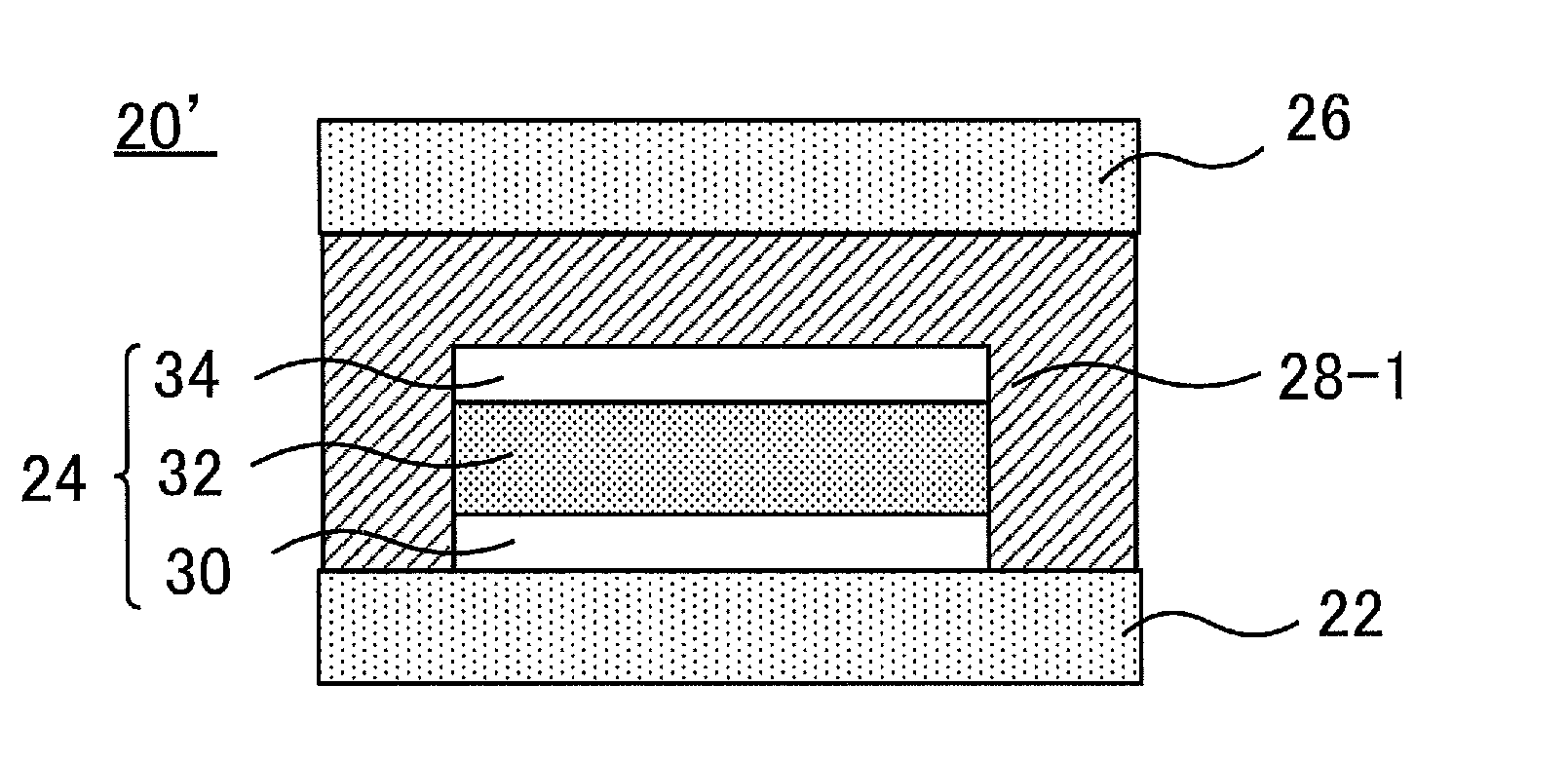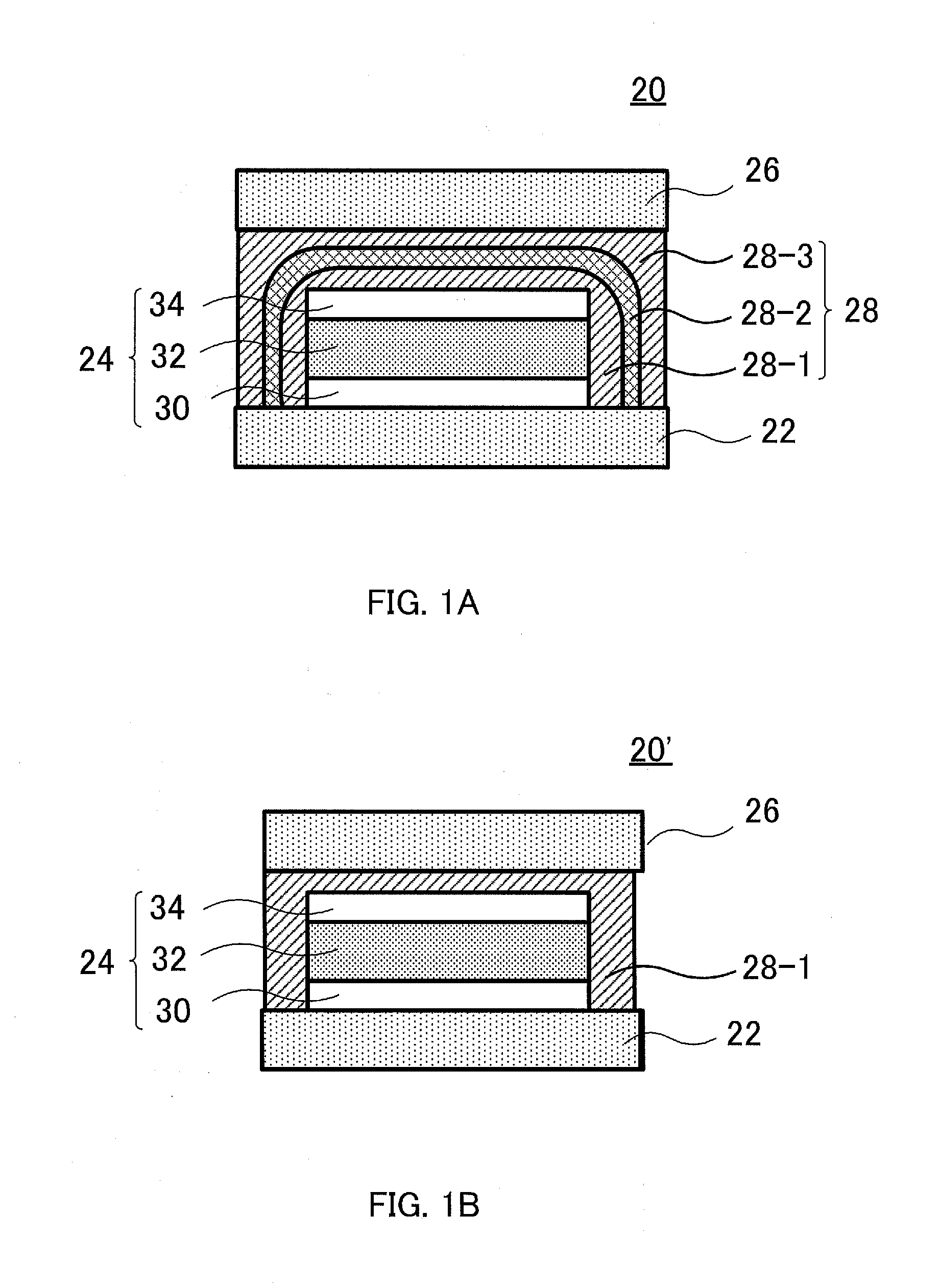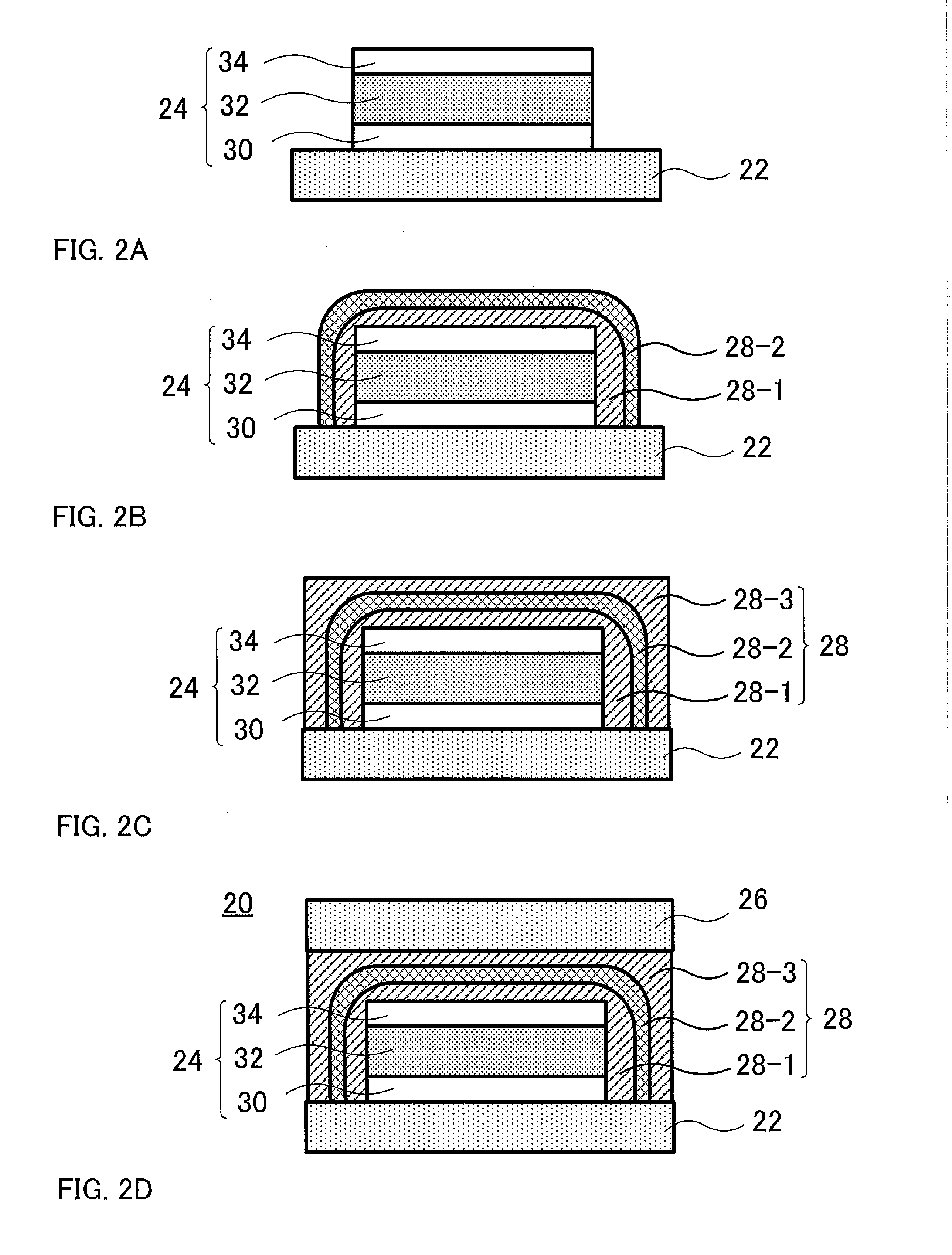Surface sealing agent for organic el element, organic el device using same, and manufacturing method for same
a technology sealing agents, which is applied in the direction of solid-state devices, thermal devices, coatings, etc., can solve the problems of thermal loss of luminescence and luminance, and easy degradation of organic el elements, etc., to achieve excellent weather resistance and plasma resistance, excellent storage stability, and sufficient cure
Inactive Publication Date: 2014-12-18
MITSUI CHEM INC
View PDF8 Cites 34 Cited by
- Summary
- Abstract
- Description
- Claims
- Application Information
AI Technical Summary
Benefits of technology
The surface sealing agent in this patent is designed to cure at low temperatures to protect organic EL elements from damage during surface sealing. The cured product is also resistant to weather and plasma, and is stable for storage without hardening during transportation and storage.
Problems solved by technology
However, the organic EL elements are extremely easily degraded when exposed to moisture or oxygen.
For these reasons, organic EL elements have the drawbacks of loss of luminescence and reduced luminance.
However, if the temperature during heat curing is high, the organic EL element is thermally degraded.
Discoloration also reduces the quality of appearance of the organic EL element.
Also in the case of a back emission type organic EL element, if a cured product of a surface sealing agent is discolored, discoloration reduces the quality of appearance.
Method used
the structure of the environmentally friendly knitted fabric provided by the present invention; figure 2 Flow chart of the yarn wrapping machine for environmentally friendly knitted fabrics and storage devices; image 3 Is the parameter map of the yarn covering machine
View moreImage
Smart Image Click on the blue labels to locate them in the text.
Smart ImageViewing Examples
Examples
Experimental program
Comparison scheme
Effect test
example 1
[0166]In a flask purged with nitrogen, 100 parts by weight of an epoxy resin, 2 parts by weight of a quaternary ammonium salt (1), and 4 parts by weight of a silane coupling agent were mixed at 50° C. with stirring to obtain a surface sealing agent.
the structure of the environmentally friendly knitted fabric provided by the present invention; figure 2 Flow chart of the yarn wrapping machine for environmentally friendly knitted fabrics and storage devices; image 3 Is the parameter map of the yarn covering machine
Login to View More PUM
| Property | Measurement | Unit |
|---|---|---|
| viscosity | aaaaa | aaaaa |
| curable temperature | aaaaa | aaaaa |
| curable temperature | aaaaa | aaaaa |
Login to View More
Abstract
The present invention addresses the issue of providing a surface sealing agent which can be cured at low temperatures and which exhibits excellent storage stability. In order to resolve this issue, provided is a surface sealing agent for an organic EL element, the surface sealing agent including an epoxy resin (A) having at least two epoxy groups in a molecule, and a curing accelerator (B) which is a salt of a specific quaternary ammonium ion, wherein 0.1-10 parts by weight of the curing accelerator (B) is contained relative to 100 parts by weight of the surface sealing agent.
Description
TECHNICAL FIELD[0001]The present invention relates to a surface sealing agent for an organic EL element, an organic EL device using the same, and a method for manufacturing the same.BACKGROUND ART[0002]Organic EL elements are organic semiconductor devices and are expected to be used as backlights for liquid crystal displays and self-luminous thin flat display devices. However, the organic EL elements are extremely easily degraded when exposed to moisture or oxygen. Specifically, the metal electrode and the organic EL layer are separated from each other at their interface by the influence of moisture, metal is oxidized to cause an increase in resistance, or organic matter itself is deteriorated by moisture. For these reasons, organic EL elements have the drawbacks of loss of luminescence and reduced luminance.[0003]Many methods for protecting organic EL elements from water and oxygen have been reported, one of which involves surface-sealing of the organic EL element with a transparen...
Claims
the structure of the environmentally friendly knitted fabric provided by the present invention; figure 2 Flow chart of the yarn wrapping machine for environmentally friendly knitted fabrics and storage devices; image 3 Is the parameter map of the yarn covering machine
Login to View More Application Information
Patent Timeline
 Login to View More
Login to View More Patent Type & Authority Applications(United States)
IPC IPC(8): H01L51/52C09D163/00H01L27/32H01L51/50H01L51/56
CPCH01L51/5246H01L51/5012C09D163/00H01L27/32H01L51/56C08G59/686H10K59/8722H10K71/40H10K59/873C08G59/40C08J5/18C08K5/17C08K5/5415C08L63/00C08L2203/206C08L2203/162H10K50/8426H10K50/11H10K50/844H10K59/00H10K71/00
Inventor YAMAMOTO, YUGOOKABE, JUN
Owner MITSUI CHEM INC
Features
- R&D
- Intellectual Property
- Life Sciences
- Materials
- Tech Scout
Why Patsnap Eureka
- Unparalleled Data Quality
- Higher Quality Content
- 60% Fewer Hallucinations
Social media
Patsnap Eureka Blog
Learn More Browse by: Latest US Patents, China's latest patents, Technical Efficacy Thesaurus, Application Domain, Technology Topic, Popular Technical Reports.
© 2025 PatSnap. All rights reserved.Legal|Privacy policy|Modern Slavery Act Transparency Statement|Sitemap|About US| Contact US: help@patsnap.com



